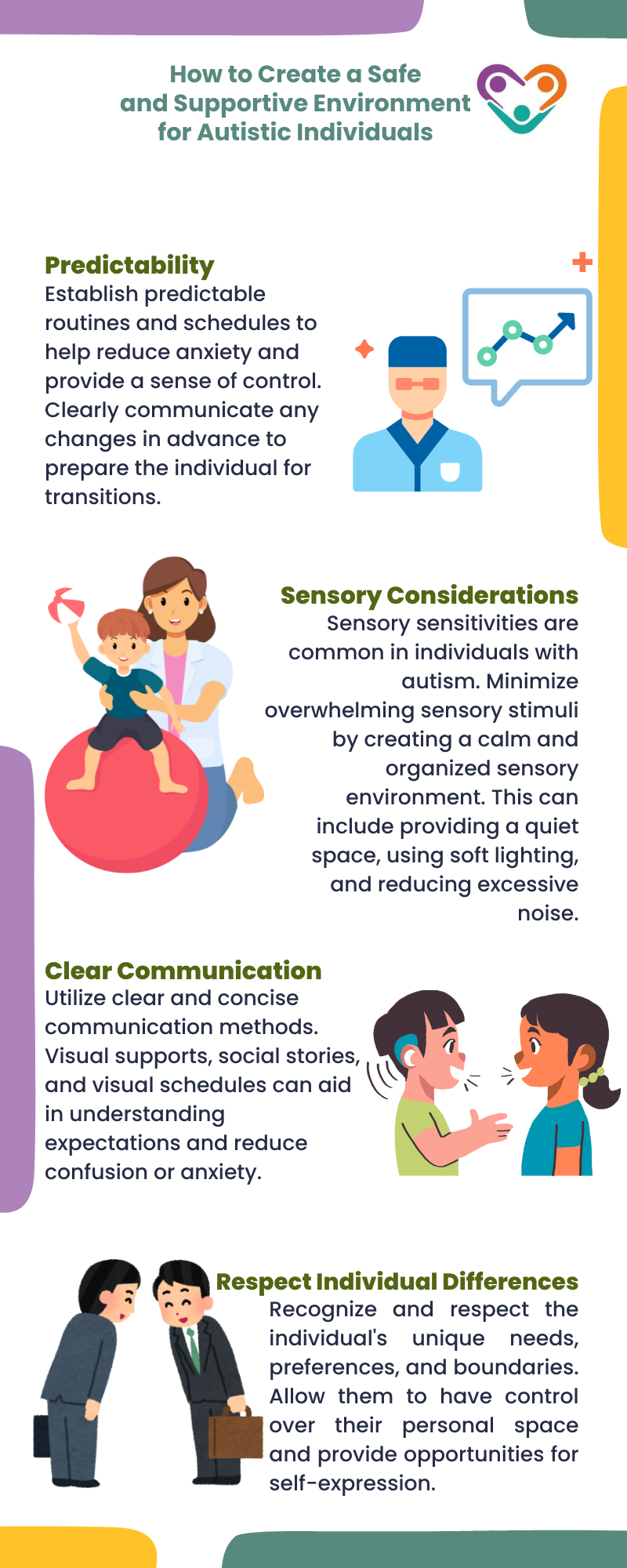In order to gain a deeper understanding of autism and emotional sensitivity, it is essential to explore the concepts of neurodiversity and sensory processing in the context of autism.
Autism is a neurodevelopmental condition that is characterized by a wide range of strengths and challenges. The concept of neurodiversity recognizes that neurological differences, including autism, should be respected and valued as part of human diversity.
People with autism often have heightened sensitivities to various stimuli, including emotions. This increased sensitivity can manifest in different ways and may contribute to emotional challenges that individuals with autism may face.

Sensory Processing in Autism
Sensory processing refers to how the brain receives and interprets sensory information from the environment. Individuals with autism often exhibit differences in sensory processing, which can impact their emotional sensitivity.
Due to this, highly sensitive children with autism may also contend with conditions like anxiety or sensory processing disorders.
Sensory Processing Sensitivity (SPS) is a personality trait characterized by increased sensitivity and responsiveness to sensory stimuli. It is believed to affect approximately 15-20% of the population. In the context of autism, heightened sensory sensitivity can contribute to emotional sensitivity, as individuals may be more attuned to emotional cues from others.
On the other hand, Sensory Processing Disorder (SPD) is a neurological condition characterized by difficulties processing and responding to sensory information from the environment.
Individuals with autism may experience sensory challenges related to various senses, such as sounds, lights, smells, textures, and emotions. These sensory sensitivities can influence emotional responses and contribute to emotional regulation challenges in individuals with autism.

Emotional Sensitivity in Autism
Emotional sensitivity is a significant aspect of autism that can have a profound impact on individuals’ daily lives.
It involves three key aspects which are as follows:
Emotional Awareness
Autistic individuals may exhibit a heightened awareness and sensitivity to emotions, both their own and those of others. This heightened sensitivity can manifest as being attuned to subtle emotional cues, such as facial expressions and tone of voice.
Highly sensitive children often display this heightened awareness and sensitivity to sensory information, including emotions.
However, it’s important to note that emotional sensitivity can vary among individuals with autism.
Emotional Regulation Challenges
One of the core challenges that individuals with autism often face is regulating their emotions effectively.
People with high-functioning autism may experience intense emotions in response to seemingly insignificant events and have difficulty labeling and controlling their emotions. This can lead to emotional dysregulation, which may manifest as outbursts, meltdowns, or withdrawal.
As such, parents, caregivers, and educators should provide strategies and support to help individuals with autism develop effective emotional regulation skills. This may include teaching techniques such as deep breathing exercises, mindfulness practices, and identifying and communicating emotions using visual aids or social stories.
Rejection Sensitivity
Autistic individuals may experience rejection at a higher rate than their non-autistic peers. This can lead to a constant sense of feeling like they are doing everything wrong and second-guessing many interactions.
This experience of rejection sensitivity can be distressing and impact self-esteem and overall well-being. In some cases, it may lead to the development of Rejection Sensitive Dysphoria (RSD), a phenomenon where perceived rejection or failure can feel intensely emotionally painful for many autistic people.
To support individuals with autism who experience rejection sensitivity, it is crucial to create inclusive and accepting environments that foster a sense of belonging and understanding.
Educating others about autism and promoting empathy and acceptance within the community can also help reduce instances of rejection and provide support for those who are emotionally sensitive.

Coping Mechanisms
As parents and caregivers, it is important to understand and address emotional sensitivity in their autistic children.
This is where coping mechanisms play a key role as they help individuals navigate their emotions and build resilience.
One such method to achieve this is by creating a safe and supportive environment. A safe environment provides a sense of security and promotes emotional well-being. Here are some strategies that can help achieve it:

Building emotional resilience is also another important method to help individuals with autism effectively manage and cope with emotional challenges. Here are some strategies that parents and caregivers can follow:
- Emotional Awareness – Encourage individuals with autism to develop self-awareness of their emotions. This can be done through activities such as journaling, using emotion charts, or engaging in open discussions about feelings.
- Emotion Regulation Techniques – Teach and practice emotion regulation techniques, such as deep breathing exercises, mindfulness techniques, or engaging in sensory activities that promote relaxation. These techniques can help individuals manage overwhelming emotions and promote self-control.
- Social Skills Development – Support the development of social skills to enhance emotional resilience. This can include teaching perspective-taking, empathy, and effective communication strategies. Social skills training programs and therapy can be valuable resources in this regard.
- Support System – Foster a strong support system that includes family, friends, and professionals who understand and support the unique needs of individuals with autism. This network can provide emotional support, guidance, and reassurance during difficult times.
By creating safe environments and building emotional resilience, individuals with autism can better navigate their emotions and improve their overall well-being. It is important to remember that each individual is unique, and coping mechanisms may vary.
Tailoring strategies to meet the specific needs of individuals with autism is key to promoting their emotional growth and fostering a positive emotional environment.

Empathy in Autism
Empathy, which is the ability to understand and share the feelings of others, is a complex aspect of emotional sensitivity in individuals with Autism Spectrum Disorder (ASD).
While there may be challenges in expressing empathy, it is important to distinguish between empathy and sensitivity in the context of autism.
Researchers have found that individuals with autism, who do not have alexithymia (a condition characterized by difficulty identifying and describing emotions), show typical levels of empathy.
In contrast, individuals with alexithymia, regardless of whether they have autism or not, tend to have lower levels of empathy. This suggests that autism itself is not associated with a lack of empathy, but rather with difficulties related to alexithymia.
It’s important to note that sensitivity issues faced by individuals with ASD, both hypersensitivity and hyposensitivity, can affect their ability to correctly identify and differentiate their own emotions from the emotions of others.
This can lead to confusion between their own feelings and the feelings of those around them. However, sensitivity does not negate the capacity for empathy.
Challenges in Expressing Empathy
One of the challenges individuals with ASD may face in expressing empathy is their difficulty in regulating responses to physical, mental, and emotional stimuli.
Sensory sensitivities can extend beyond just physical stimuli and can also affect thoughts and feelings. This can make it challenging for individuals with ASD to discern and understand the emotions of others, as they may respond based on their own feelings rather than accurately perceiving the emotions of the other person.
However, it is important to recognize that individuals with ASD are as capable of empathy as neurotypical individuals. The key challenge lies in managing their sensitivity to various stimuli in order to perceive and express empathy accurately. With appropriate support and understanding, individuals with ASD can develop strategies to navigate these challenges and enhance their ability to empathize with others.
Understanding the nuances of emotional sensitivity in autism can help parents, caregivers, and individuals with ASD themselves to appreciate and work towards effective emotional connections.
By providing a supportive environment that acknowledges and accommodates the unique sensory and emotional experiences of individuals with autism, we can foster empathy and emotional well-being for all.
Research continues to shed light on the neurological basis of sensory issues in autism, offering hope for more targeted and effective therapies in the future. By recognizing and addressing sensory processing difficulties, we can improve the quality of life for individuals with autism and their families. If you’re seeking specialized ABA therapy in New Jersey, Indiana, Georgia, and New York, Golden Care offers comprehensive services tailored to meet the unique needs of each individual. Contact us to learn more or book a consultation today.
Sources:
https://neurodivergentinsights.com/blog/highly-sensitive-child-or-neurodivergent
https://imilo.medium.com/high-functioning-autism-f0cd00a79790
https://www.verywellmind.com/what-to-know-about-autism-and-rejection-sensitive-dysphoria-7097539
https://kennethrobersonphd.com/sensitivity-not-empathy-is-the-aspergers-syndrome-problem



